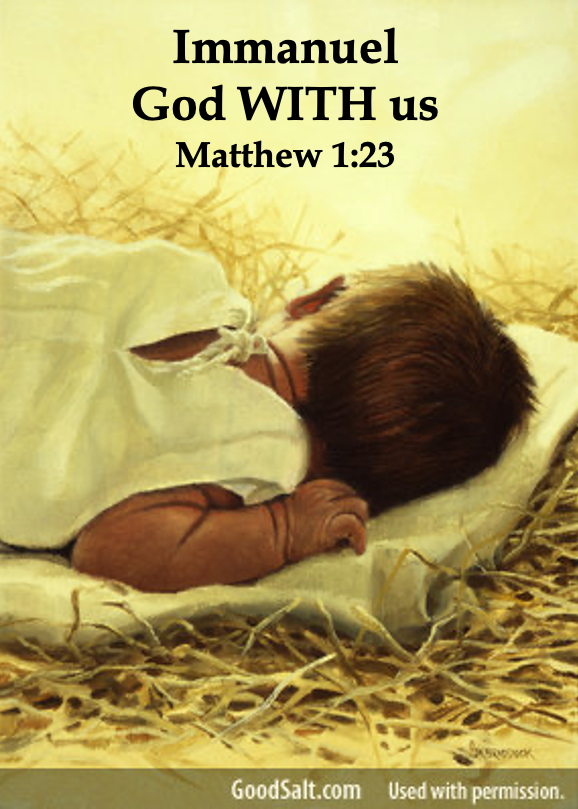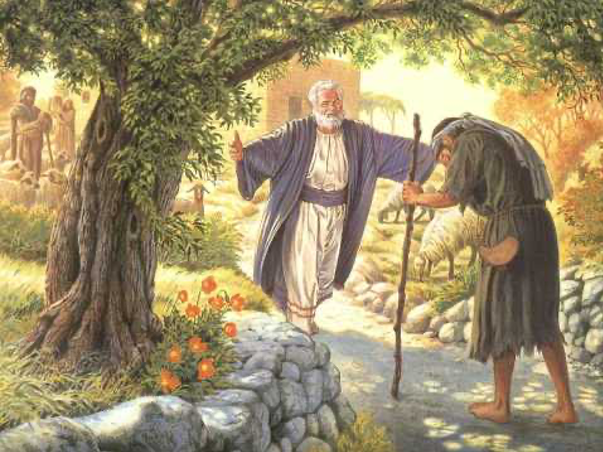“2 Keep my commands and live, and my law as the apple of your eye… 5 That they may keep you from the immoral woman, from the seductress who flatters with her words.” Proverbs 7:2, 5
The man who “keeps” or obeys God’s “commands” will “live” and experience God’s protection in his life. The phrase “the apple of your eye” refers to the pupil which is the most sensitive and carefully guarded part of the human body (7:2a). When God’s “law” becomes our most important focus, when it is what we pay the closest attention to (7:2b), it will “keep” or guard us from the many allurements of “the immoral woman” and “seductress who flatters with her words” (7:5). God’s Word instructs us to…
1. Avoid where and when the sexual temptation is waiting – “the path to her house in the twilight… in the black of the night” (7:7-9). Establish guardrails that keep you from being tempted such as no searching online when you are alone at night, lock up your digital devices using internet filters to give you accountability when accessing the internet, avoid massage parlors, strip clubs, bars, etc.
2. Avoid women online or in person …
- Who dress seductively – “attire of a harlot” (7:10a)
- Whose hearts are “crafty” or secretive/deceptive (7:10b)
- Who are defiant (“loud and rebellious”) against God’s Word and the sanctity of marriage (7:11a)
- Who are promiscuous – “her feet would not stay home…” (7:11b-12)
- Who are overly aggressive, sensual, and shameless – “she caught him and kissed him; with an impudent face she said to him…” (7:13)
- Who minimize wrongdoing by referring to their religious activity (“I have peace offerings with me; today I have paid my vows”) and entice men with a meal in her home (the animal sacrifice usually included leftover meat which must be consumed the same day in her home – 7:14; cf. Lev. 7:15)
- Who seek to build your ego up with flattery – “So I came out to meet you, diligently to seek your face, and I have found you” (7:15)
- Who seek to entice with you with a sensuous description of their bedroom – “I have spread my bed with tapestry, colored coverings of Egyptian linen. I have perfumed my bed with myrrh, aloes, and cinnamon” (7:16-17)
- Who proposition you – “Come, let us take our fill of love until morning; let us delight ourselves with love” (7:18)
- Who reassure you of your safety from their husband – “For my husband is not at home; he has gone on a long journey; he has taken a bag of money with him, and will come home on the appointed day” (7:19-20)
- Who disarm you with their “flattering lips” (7:21)
3. Avoid seductive women online or in person because…
- They will lead you to far-reaching consequences including bondage and death – “Immediately he went after her, as an ox goes to the slaughter, or as a fool to the correction of the stocks, till an arrow struck his liver. As a bird hastens to the snare, he did not know it would cost his life.” (7:22-23)
We are living in a very sexualized society today whereby pornography is very accessible, affordable, aggressive, anonymous, and appealing. Solomon’s description of the seductress is much like the digitalized pornographic women online. Satan uses the beauty of women (in person and online) to entice Christian men away from God and His design for purity in marriage and family, so he can “steal, kill, and destroy” (John 10:10a) their lives today (1 Pet. 5:8).
Solomon concludes these warnings by inviting us to listen to his advice (7:24):
- Guard your heart. “Do not let your heart turn aside to her ways” in your imagination or fantasies (7:25a; cf. Matt. 5:28). We are already in danger if we are fantasizing about having sex with a woman outside of marriage. When we are tempted to fantasize about her, turn to the Lord and pray for her salvation (if she is not a believer in Jesus), or for her purity (if she is a believer). Reach out to a brother in Christ to confess your struggle and pray with each other (Jas. 5:16).
- Guard your body. “Do not stray into her paths” (7:25b). Avoid where the seductress is waiting for you whether it be online or in person. Do not go or stay near to someone (online or in person) who resembles the immoral or seductive women that Proverbs 7 describes. Ask God what your first step must be to do this. Locking up your digital devices? Getting a flip phone? Changing jobs or locations? Joining a men’s recovery group that deals specifically with porn and sex addiction?
- Guard your future. “For she has cast down many wounded, and all who were slain by her were strong men. Her house is the way to hell, descending to the chambers of death” (7:26-27). No matter how “strong” we think we are, we must take seriously the consequences of yielding to her seductive ways. To be in “her house” and in her bed in our thoughts or in person will place us on a fast speedway to “hell” (Sheol) or the grave. If we pursue sin long enough and hard enough it will lead to physical “death.” Possible causes of death could be punishment from an angry husband, from poverty, from STDs, or from spiritual and emotional anguish.
While King Solomon wrote Proverbs 7 warning of the allurements of seductive immoral women, he did not follow his own advice later in life. The Bible tells us, “When Solomon was old, that his wives turned his heart after other gods; and his heart was not loyal to the Lord his God, as was the heart of his father David” (I Kgs. 11:4). Even though God had warned Solomon not to marry foreign wives because they would turn away his heart after their gods (11:2), Solomon disobeyed the Lord and “had seven hundred wives, princesses, and three hundred concubines; and his wives turned away his heart” (11:3). Solomon did not just worship their false gods, he also built worship centers for the people of Israel to worship the false gods of his foreign wives (11:7-8). As a result, God “became angry with Solomon, because his heart had turned from the Lord God of Israel, who had appeared to him twice, and had commanded him concerning this thing, that he should not go after other gods; but he did not keep what the Lord had commanded” (I Kgs. 11:9-11).
Solomon’s sexual immorality led to widespread idolatry. In many ways, viewing pornography is idolatrous. What is an idol? An idol is turning to something or someone other than God when we are anxious, bored, depressed, exhausted, lonely, self-doubting, stressed, or even wanting to celebrate. More and more Christians are turning to pornography [1] instead of the Lord to medicate or celebrate their feelings. Pornography is an idol that is destroying the sons and daughters of God around the world.
As long as we are living in these fallen physical bodies, there will always be the danger of being seduced by immoral women in person or online which can cause us to fall away from the Lord our God. Solomon ignored God’s design for marriage (one wife for life or until the death of one’s spouse – Gen. 2:24; cf. Mark 10:6-12; Rom. 7:2-3; I Cor. 7:10-11), and married hundreds of wives and had hundreds of mistresses.
May none of us think we are beyond the reaches of sexual immorality and the idolatry that often accompanies it.
In Solomon’s case, it is better to do what he says, not what he did. We must guard our hearts, our bodies, and our futures from the dangers of sexual immorality (Prov. 7:24-27). God the Holy Spirit can empower us to do this as we yield to Him in the context of a recovery community of believing brothers in Christ (Rom. 8:10-11; 2 Tim. 2:22).
No matter where we may find ourselves in our dealings with sexual temptation, there is always hope in the Lord Jesus Christ. Jesus is not uncomfortable with our sin or shame. He already knows about it, and He wants us to approach His throne of grace with confidence or boldness because He understands and is sympathetic towards our weaknesses (Heb. 4:15-16). Satan wants to convince us that God is against us and condemns us (Rev. 12:10).
Jesus tells us that His heart is “gentle and lowly” (Matt. 11:29), not condemning (cf. John 3:17). When in the temple, Jesus read Isaiah 42:3 which described the coming Messiah: “A bruised reed He will not break, and smoking flax He will not quench.” (Matt. 12:20). Jesus, the Messiah, will not treat those of us who are “bruised” with sin and shame harshly (“break” them). He comes along side of us to strengthen and heal us with His presence rather than step on us to advance His own plans. He will not “quench” what little hope (“smoking flax”) we have left inside of us. He wants to rekindle our love and passion for Him and for life itself. He does this with His gentle and gracious presence in our lives which heals our wounds and replaces our shame with dignity.
God says He is for us and demonstrated this by giving us His best – His only perfect Son – when we were at our worst (Rom. 5:8, 10) – to take our condemnation when He died in our place for all our sins and rose from the dead (Rom. 8:31-32, 34). If God gave us His best when we were at our worst, how much more will He do for us now that we are His beloved children!?!
Prayer: Father God, thank You for addressing sexual temptation and sin in these verses. Christian men are being sexually assaulted by the enemy in our society today. Most if a not all of us have mobile devices where we can easily access the allurements of seductive women via online pornography without anyone knowing about it but You. Before it is too late, please Father God, rescue us, redeem us, and restore us to close fellowship with You through the grace of our Lord Jesus Christ. Heal the pain that often drives us to turn to sexual sin. We all have wounds that need Your healing touch. Thank You, Lord Jesus, for being gentle and gracious with our brokenness and shame so we can let down our guard and permit You to heal our wounds and replace our shame with dignity. Please break the chains that keep us bound to our shame. Help us set our minds on the things of the Holy Spirit Who reminds us that You are for us and not against us. The proof? You gave us Your best (Jesus) when we were at our worst (Your enemies), so that now as Your beloved children we can expect Your best for us daily. Please transform our ashes into beauty so we may proclaim the praises of Him Who called us out of darkness into His marvelous light. In the mighty name of the Lord Jesus Christ, we pray. Amen.
FOOTNOTE:
[1] Statistics indicate that 60-70 percent of men, 50-58 percent of pastors, and 20-30 percent of women in evangelical churches are sexually addicted – see Jeremy & Tiana Wiles, Conquer Series Study Guide Volume 1 (Stuart, FL: KindgomWorks Studios, 2017), pg. 21.







